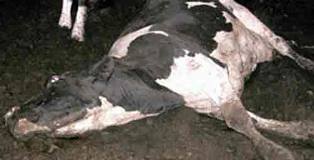This story was first published by Alternet and is being cross-posted by the Center for Media and Democracy's Food Rights Network.
Driving through Ngong Hills, not far from Nairobi, Kenya, the corn on one side of the road is stunted and diseased. The farmer will not harvest a crop this year. On the other side of the road, the farmer gave up growing corn and erected a greenhouse, probably for growing a high-value crop like tomatoes. Though it's an expensive investment, agriculture consultants now recommend them. Just up the road, at a home run by Kenya Children of Hope, an organization that helps rehabilitate street children and reunite them with their families, one finds another failed corn crop and another greenhouse. The director, Charity, is frustrated because the two acres must feed the rescued children and earn money for the organization. After two tomato crops failed in the new greenhouse, her consultant recommended using a banned, toxic pesticide called carbofuran.

 The farm bill S. 3240,
The farm bill S. 3240,  A downer cow at a California dairy was
A downer cow at a California dairy was